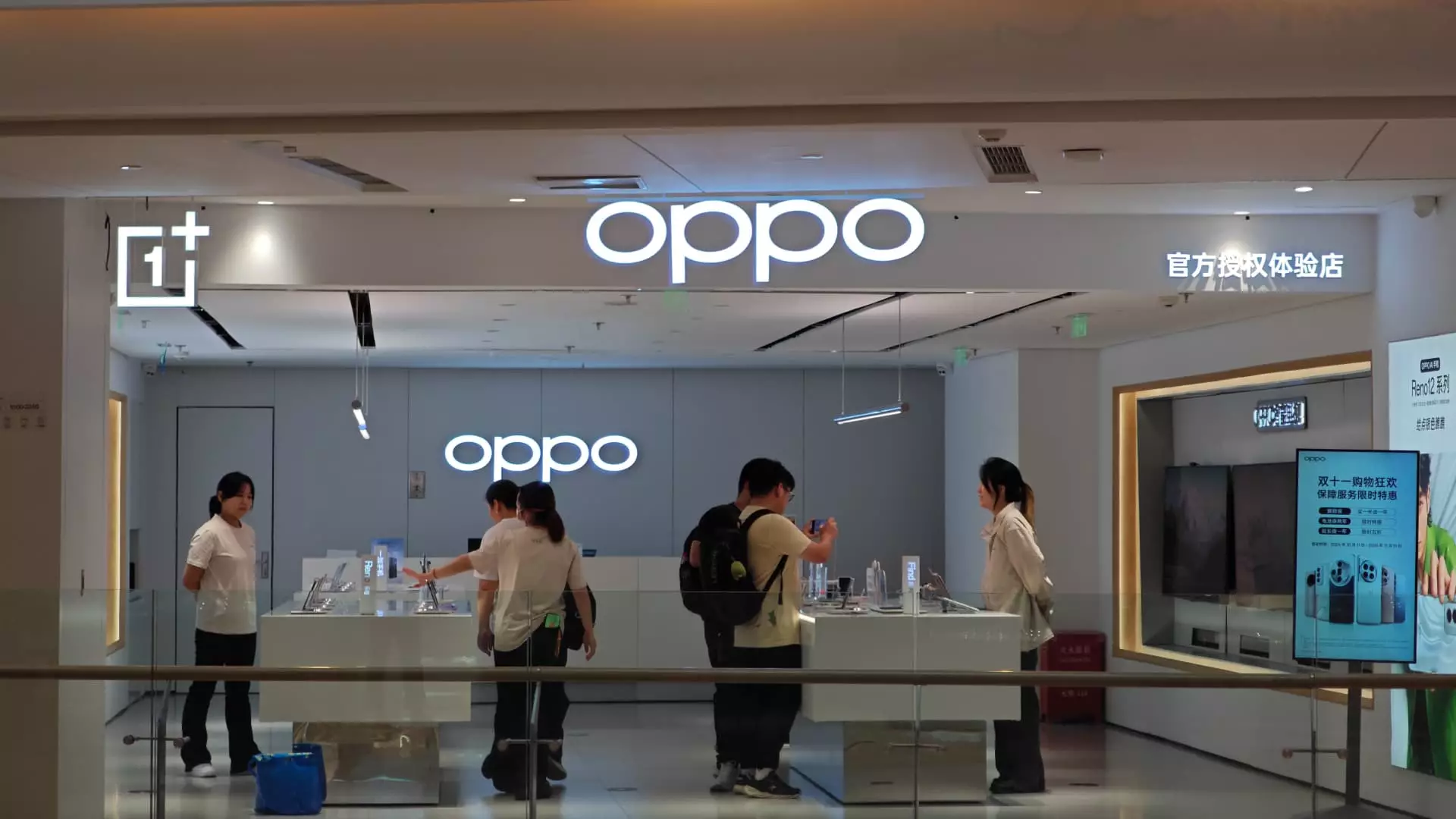Chinese smartphone manufacturer Oppo is positioning itself as a formidable player in the burgeoning arena of artificial intelligence (AI). In an era where companies are racing to harness AI capabilities, particularly generative AI—which generates human-like responses—Oppo is engaging in high-level discussions with tech giants like Google and Microsoft. These collaborations reflect an increasing recognition of AI’s potential to revolutionize consumer experiences, readying the company for an ambitious launch of its flagship phone on the international stage.
Oppo’s commitment to integrating AI into its product offerings indicates a strategic shift aimed at not only addressing existing consumer needs but also anticipating future demands. Billy Zhang, the president of Oppo’s overseas market, made it clear that the company is eager to understand and address consumer pain points in collaboration with Google, emphasizing a partnership that aims to innovate based on real-user feedback. By actively exploring how AI can enhance user experience, Oppo aspires to differentiate itself in a competitive marketplace.
As Oppo expands its footprint beyond the Asian market, the company is strategically increasing its presence in Europe, even though it currently has no immediate plans to enter the U.S. market. This cautious yet calculated approach could be reflected in its significant reliance on overseas markets like Southeast Asia and Europe, which account for around 60% of its revenue. Recent statistics illustrate Oppo’s robust position in the global smartphone market, where it ranked fourth in shipments, catering to about 9% of total smartphone units sold.
Even as Oppo contemplates expansion, the company must navigate geopolitical hurdles, especially concerning the U.S. restrictions on high-end chip exports to China. Nevertheless, industry experts assert that Chinese firms like Oppo might still lead in consumer-focused AI applications. This assertion highlights a paradox where, despite the U.S. being ahead in AI capabilities, Chinese companies are capitalizing on the rising demand for AI-driven consumer technology.
Oppo has ambitious plans for its forthcoming flagship smartphone, promising innovative AI features including writing and recording summary tools powered by Google’s Gemini, as well as content generation capabilities from Microsoft. Such advancements aim to enhance user productivity and creativity, showcasing Oppo’s commitment to technological integration. The potential of its AI functionalities isn’t limited to new models; the company has also indicated past progress by integrating AI tools since 2020 and operating its own AI center.
Zhang’s enthusiasm for AI underscores its transformative potential across industries, hinting at a broader vision for technology beyond smartphones. The report from Counterpoint Research suggests a monumental increase in the demand for generative AI smartphones, projecting a rise from 46 million units last year to a staggering 732 million by 2028. This figure encapsulates the promise that generative AI holds for both consumers and manufacturers in the tech space.
In addition to innovations in consumer electronics, Oppo is pushing the boundaries of automation within its manufacturing processes. The company has taken concrete steps to digitize its operations, including the replacement of approximately 8% of its workforce with automation in its Dongguan facility. This shift not only addresses efficiency but also reallocates human resources toward more complex tasks, assisting in the production of higher-end devices.
The role of AI in production management is also becoming increasingly evident. By optimizing manufacturing processes through automated systems, Oppo has successfully reduced costs by nearly 40% in three years while trimming production time from sixteen to six days. Such advancements position Oppo favorably against competitors in a rapidly evolving tech marketplace, allowing it to respond more efficiently to market demands and streamline operations across its global production sites.
As Oppo continues its bold forays into artificial intelligence, the company is not only responding to current technological trends but also shaping the future of smartphone innovation. By leveraging powerful partnerships and embracing automated solutions, Oppo aims to refine both user experience and manufacturing efficiency. The trajectory of Oppo suggests that with continued investment in AI, the company may well lead a new wave of technological evolution in the smartphone industry. The decisive question remains: how will these advancements redefine consumer interaction with technology in the years to come?

